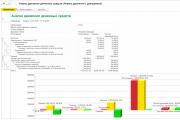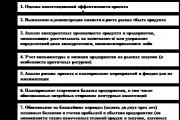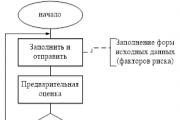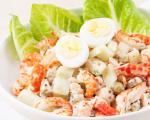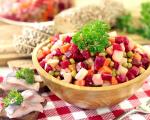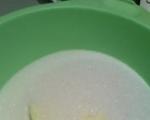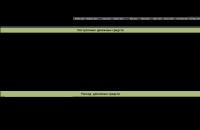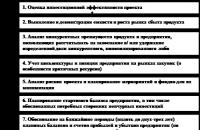Organ diseases gastrointestinal tract often accompanied by pain. It is caused by a spasm of smooth muscles and can be unbearable. Drugs that can relieve muscle spasms are antispasmodics. There is an extensive list of medications that relieve intestinal discomfort. It is useful for every person to learn to understand them.
For pain in the intestines due to illness, it is permissible to take antispasmodics to eliminate discomfort.
What types of antispasmodics are there?
The antispasmodic acts either directly on the muscles or on the process of transmitting impulses along nerve endings. There are also medications that combine both functions. the main objective– relieve spasms of smooth muscles. Smooth muscle is found in the skin, sensory organs, and forms internal organs and the walls of blood vessels. It obeys the autonomic nervous system.
Drugs that help with cramps are available in the form of:
- tablets;
- tinctures;
- capsules;
- candles;
- drops;
- ampoules;
- herbal preparations.
Depending on the mechanism of action, certain groups of medications are distinguished.
Neurotropic antispasmodics
 Neurotropic antispasmodics act directly on the central nervous system, blocking pain in the intestines.
Neurotropic antispasmodics act directly on the central nervous system, blocking pain in the intestines. Such pharmaceuticals do not provide nerve impulse come from the brain directly to the muscle. Some of them affect the brain itself. There are also more selective ones, they work locally with nerve endings in the muscles of the gastrointestinal tract. The action of these drugs is based on M-anticholinergics.
It should be remembered that neurotropic substances affecting the brain have side effects. Heartbeats may become more frequent, blood pressure may increase, and neurohumoral function (one of the forms of body regulation) decreases.
A product that works directly with receptors is more gentle. It only affects pain in the intestines and does not affect other human organs.
Myotropic drugs
Such antispasmodics do not affect nervous system. These are substances that work in muscles. They do not allow potassium ions and some enzymes to enter the cells, which reduces pain. Such medications are often prescribed for intestinal disorders. They may be based on:
- drotaverine (the most famous is “No-Shpa”);
- papaverine (the most famous is “Papaverine”);
- mebeverine (“Niaspam”, “Sparex”);
- trimebutin (“Trimedat” and “Neobutin”).
Neuromyotropic drugs
This group combines both activities. This effect is achieved through a combination of two or more active ingredients.
Herbal antispasmodic medications that block spasms. Some herbs have an effect on the intestinal muscles. Fennel, mint, belladonna, tansy, chamomile - these plants can remove spasms without side effects. Tablets, syrups and other preparations are made from them.
 Neuromyotropic antispasmodics are also prescribed for children to eliminate intestinal pain.
Neuromyotropic antispasmodics are also prescribed for children to eliminate intestinal pain. Antispasmodics based herbal ingredients often prescribed to children. Pain in the intestines can manifest itself literally from infancy in the form of colic. They cause great discomfort to the baby. Colic is not generally considered a disease, but despite this, it causes anxiety, disrupts sleep and the child’s routine, and directly affects general state, and, moreover, cause a lot of trouble for parents.
Suffering can often be reduced with the help of special syrups and suspensions. Syrups based on herbal ingredients are often prescribed. For example, Plantex blocks spasms in the intestines and is safe for children. The drug “Azulan” is made based on chamomile, “Tanacehol” is based on tansy. There are other similar drugs.
Complex antispasmodic drugs
This is a complex of substances that relieves spasms and other symptoms. For example, these medications can reduce fever and relieve inflammation. They will not only eliminate the pain, but also remove the cause of the disease. Thus, “Pentalgin” is prescribed not only in case of spasm, but also in case of fever. "Spazmolgon" effectively helps with pain and is prescribed for high blood pressure. Novigan is prescribed; it also helps with migraines and joint pain. The versatility of such drugs makes them very popular.
 Many plants have the ability to relieve pain, which can be used as an alternative solution to pills.
Many plants have the ability to relieve pain, which can be used as an alternative solution to pills. Antispasmodic herbs for the intestines
The safest assistants with no contraindications. Herbs have long been used in the treatment of pain. Before buying tablets or syrups, you can take herbal decoctions: chamomile, oregano, tansy, calamus, immortelle, oregano. They are sold at the pharmacy in the form of ready-made preparations. There are special ones for children medicinal teas, helping with colic.
When to use and how to treat?
Antispasmodic medications - tablets, syrups or suppositories for the intestines, are prescribed when a person is diagnosed with a disorder in the functioning of the gastrointestinal tract. Ailments such as gastritis, pancreatitis, and peptic ulcers are always accompanied by excruciating pain for a person. In this case, medications of this group reduce the manifestations of the disease, and in some cases also affect its cause: they reduce inflammation, tone, and fever. It should be remembered that only a doctor can choose the right drug.
The choice of pharmacological names is very extensive, and a specific one can be prescribed only by knowing the picture of the disease. For example, medications based on anticholinergics are prescribed, in addition to pain, for excessive secretion in the intestines. Similarly, a series complex drugs prescribed not only for pain syndrome, and also with other symptoms: fever, high blood pressure.
 Pain in the intestines must be relieved with antispasmodics for pregnant women and children.
Pain in the intestines must be relieved with antispasmodics for pregnant women and children. To reduce discomfort from colic in newborns, such medications also play a leading role. Often, discomfort can be eliminated only with the help of baby syrups, drops or special herbs for colic. Pregnancy is often accompanied by intestinal discomfort. In such cases, it is sometimes advisable to prescribe medications.
When breastfeeding, drugs based on drotaverine are prescribed, but only in special cases.
For older people, intestinal problems are often particularly acute. In addition, patients in this category cannot endure pain for long. Taking pills can be just a salvation for them. But some antispasmodic medications can cause constipation, a problem that already bothers older people. Therefore, tablets, suppositories, drops for spasms in the intestines should have the mildest effect.
There are also specific prescriptions for various intestinal diseases.
- For pancreatitis, antispasmodics of the myotropic group are prescribed. They relieve cramps in a few minutes. In some cases, the effect occurs within half an hour.
- For gastritis, medications are prescribed that include anticholinergics. These substances reduce acidity, which in some cases is justified in this disease.
- For colitis, both myotropic and neurotropic antispasmodics are prescribed. Also suitable for diarrhea complex treatment, in order not only to remove the spasm, but also to reduce too active peristalsis.
Contraindications
 Antispasmodics to relieve intestinal pain are contraindicated in case of tuberculosis, pathologies of the heart or kidneys, or infections.
Antispasmodics to relieve intestinal pain are contraindicated in case of tuberculosis, pathologies of the heart or kidneys, or infections. It is important to understand that each syrup, each tablet has its own specific contraindications. You should not take them without consulting a doctor and carefully reading the instructions. TO general contraindications relate:
- tuberculosis;
- bacterial infections;
- some intestinal diseases;
- problems with the heart or kidneys;
- individual intolerance.
What do you mean by individual intolerance? Often this is an allergy to the medicine or some of its components, or specific reactions of the body, such as nausea, vomiting, disturbances in the functioning of the nervous and cardiovascular systems. The wrong drug may cause seizures, headache, decreased blood pressure and tachycardia. Often the reason lies not even in the drug itself, but in the wrong dosage.
Such pharmaceuticals are prescribed with caution to pregnant and lactating women. Only a doctor can prescribe such substances for children. Often the most safe means for children are herbs or synthetic tablets and syrups based on plant components. Newborns are shown special drops and syrups for colic. For children over 2 years old, the doctor may prescribe certain types of medications from the myotropic group.
Intestinal spasms are a common phenomenon that manifests itself in the form of painful contractions of muscle tissue in different intestinal sections. According to statistics, most often spasms appear in the thin or thick section, although the pain accompanying this disease spreads to the entire intestinal cavity. How intestinal spasms manifest themselves, the causes and treatment of pathology - all this will be discussed in this article.

Intestinal spasms - causes and treatment
The most common factors that contribute to the occurrence of intestinal spasms include:


On a note! During pregnancy, women often encounter various bowel problems, which manifest themselves in the form of constipation, or painful sensations in the lower abdomen. In most cases, doctors associate such conditions with frequent experiences of expectant mothers or changes in their taste preferences. The combination of all these factors contributes to spasmodic contractions of the intestines.

Types of spasms
Intestinal spasms are classified according to their cause and location. Below are the main types of cramps.

Table. Types of intestinal spasms.
| Type of spasm | Description |
|---|

| It occurs against the background of pinching of blood vessels by a tumor or adhesions, the development of atherosclerosis, thrombosis or hypertensive thrombosis. Vascular spasm often causes hyperfusion in the intestinal cavity, which is explained by increased pressure.
|

| Usually, this type spasms appear due to lead poisoning. This phenomenon is accompanied by pathological tension of the abdominal wall, bleeding from the mouth, formation gray plaque on the surface of the gums and severe fever (fever, chills, etc.).
|

| Spasmodic contraction of the walls of the rectum provokes the appearance of the rectal form. The disease is manifested by a frequent urge to defecate, which is caused by increased pressure on the rectum.
|

| Arises this variety against the background of an inflammatory process affecting the appendix. As a rule, the appearance of appendicular intestinal spasms indicates the development of appendicitis, which poses a serious danger to the human body.
|
The resulting spasms cannot be ignored, as this is fraught with serious consequences for the health and life of the patient. Therefore, when the first signs appear, you should immediately seek help from a doctor.

Characteristic symptoms
Often, intestinal spasms are accompanied by additional symptoms:
- increased sweating, especially at night;
- body chills;
- frequent urge to urination;
- insomnia;
- dizziness, migraine;
- general weakness of the body;
- attacks of nausea and vomiting.

Nausea is one of the symptoms
If the above symptoms appear, you should not hope that they will go away on their own over time. In such cases, you need to seek help from a doctor as soon as possible, who, after diagnostic examination, will be able to make an accurate diagnosis.
Diagnostic features

A gastroenterologist examines intestinal spasms. To determine the exact picture of the disease, she prescribes the following diagnostic measures:

After all necessary procedures the doctor, based on their results, can make an accurate diagnosis and prescribe an appropriate treatment regimen. The faster the diagnosis is made and the diagnosis is made, the greater the chances for a quick and successful treatment intestinal spasms.
How to treat
When treating intestinal spasms, it is necessary A complex approach, since the reason may be various pathologies. Complex therapy includes taking pharmaceutical drugs, including painkillers and antibacterial agents, the use of traditional methods using medicinal plants, as well as compliance therapeutic diet. It is extremely important to strictly adhere to the treatment regimen prescribed by your doctor. This is the only way to get rid of discomfort in the intestines. Now we will consider each of the therapy methods separately.

Medicines
For intestinal spasms, doctors usually prescribe the following groups drugs:


On a note! Even after the symptoms of the pathology are completely eliminated, the doctor will continue to monitor the patient’s condition for some time. Such control is due to the fact that intestinal spasms can recur.

Nutrition
In parallel with drug treatment doctors prescribe special diet, including products with high content vitamins If the pain is unbearable, then you need to stop eating for a while.

Should be removed from the menu harmful products which may provoke allergic reaction at the patient. It is also necessary to limit the amount of meat consumed, and if it is present in the diet, then only in boiled or stewed form. Fatty, smoked, spicy and fried foods have a negative effect on the body - they can provoke increased gas formation and flatulence, which will only worsen the symptoms of intestinal cramps. The same applies to semi-finished products.

Traditional methods
Traditional therapy can be supplemented with time-tested folk remedies. Often, in the treatment of pathology, decoctions of oak bark, plantain, chamomile and currants, tincture of sage, dried apricots and other remedies are used.

But before using this or that remedy, consultation with a specialist is required, since only an experienced doctor can determine which traditional medicine is best to cope with the symptoms of the pathology. Treatment of intestinal spasms is not always accompanied by taking pharmaceuticals, therefore, if the cause of discomfort in the intestinal area is not a pathology of the internal organs, you can cope with spasms using a warm heating pad applied to the sore spot.

Surgery
If conservative treatment methods are ineffective, doctors may prescribe surgery. This is done in extreme cases and only in the presence of accompanying causal factors. For example, if intestinal spasms occur against the background of inflammation of the appendix or in the presence of malignant tumors, That surgery appropriate here. But if the pathology is caused by ordinary overeating or severe stress, then there is no question of any operation. Of course, before undergoing surgery, the patient must undergo whole line diagnostic procedures and get tested.
Prevention measures
Intestinal spasms are extremely unpleasant phenomenon, so you need to perform the appropriate preventive actions to prevent pathology. First of all, prevention consists of normalizing nutrition. Compliance healthy diet will help avoid various gastroenterological diseases, including intestinal spasms. Include in your diet foods such as kefir, yogurt, plums, cucumbers, prunes, boiled meat and fish, fresh vegetables and foods containing fiber.

But diet is not the only method of preventing intestinal spasms. The following recommendations should also be followed:


Since intestinal spasms cause a lot of trouble, they need to be identified and treated promptly so that it does not develop into a more serious condition.
Video - Features of the treatment of intestinal colic
Diseases digestive tract a lot, one of the most common symptoms that is characteristic of such ailments is intestinal spasm. This phenomenon is characterized severe pain visceral type, all this is directly related to the fact that the intestinal walls are significantly reduced. Intestinal colic has a very characteristic feature- pain that takes on a cramping nature, as a rule, the disease is characterized not only by this symptom, but also by other signs of the disease that has affected the body.
Before starting treatment, it is necessary to find out as accurately as possible what is causing these symptoms. This is where various types of research come to the rescue, using tools such as x-rays, ultrasound, various instruments. Typically, intestinal spasms are treated conservative methods, in this regard, sedatives and antispasmodics are actively used, heat is also applied to the abdominal area, it is actively used various means against diarrhea. It should be noted right away that not even the most effective treatment cannot be successful unless the patient adheres to a specific diet, which in most cases is quite strict.
It should be noted that such phenomena do not represent an independent nosological unit, this is only one of the main signs, which indicates that there is a certain kind of problem in the activity of the gastrointestinal tract. In most cases, this disease affects children who are still infants, however, severe spasmodic pain is often felt by adults.
It should be noted that for a long time there has been fierce debate among leading gastroenterologists around the world on how to define such a disorder. intestinal function, should it be considered an ordinary sign of problems of the digestive tract, or is it still a premorbid condition, which, without the lack of timely treatment, will transform into a pathology over time? organic character. Some consensus on this serious medical issue has not been achieved at this time, but people should be aware that such a phenomenon poses a serious health risk. If you determine in time why this condition arose, then it is possible to prevent serious diseases that affect the intestines and stomach of a person.

About the causes of this illness
As already mentioned, this disease is characterized by severe pain, which occurs in the form of sudden contractions. There may be several reasons for this negative phenomenon, however, most often we are talking about various kinds of violations of the mechanical functionality of the intestine.
So, what are the main links in the pathogenesis that accompany intestinal spasm: the intestinal wall is tightened, nerve endings are subjected to significant irritation, smooth muscles are severely disturbed, pathological peristalsis often occurs and actively develops (that is, perilstatic waves either become more intense or, conversely, weaken). All this causes a barrier to the free passage of food to develop.
Intestinal spasms often arise and develop as a consequence of various types of digestive disorders, most often we are talking about gastritis, the form of which can be both acute and chronic, it can also be stomach ulcer, hepatitis and pancreatitis occur. When the process of digesting food in the stomach is disrupted and food in an incompletely processed form is sent to the intestines, its receptors begin to be irritated, and the muscles undergo spasms.
Often the causes of the disease are nutritional disorders; colic develops in the same way as with disorders of the digestive tract, however, the intestinal wall is irritated as a result of the negative effects of food that is either too dry or too spicy, we can also talk about stale food and often irritating affected by food made from yeast dough.
Often the disease occurs as a result of severe intoxication, if there are generalized viral infections (for example, ARVI or influenza), we can also talk about food poisoning(plant and industrial poisoning can also occur), salts of heavy metals have an extremely negative effect on the body.
Under the influence of poisons, intestinal spasms are formed, all this is aggravated negative impact toxins. The causes of this pathology can be various intestinal infections, if bacteria begin to develop in the intestinal lumen, then the negative impact is already complex. But here we can safely say that if not timely treatment the consequences can be not only the most negative, but also irreversible.

A number of other reasons
If a person is of the asthenic type, his psyche is labile, he constantly experiences strong emotions, then pain in the form of strong cramps in the abdomen is not uncommon, all this is also associated with intestinal spasm. When strong emotional shocks occur, then autonomic regulation intestinal motility is impaired.
If the intestine is obstructed, then its muscles can contract statically. Especially often, a spasm begins to develop against the background of a tumor. And also intestinal colic can develop as a result of adhesive intestinal obstruction, which very often is a consequence of various inflammatory diseases abdominal cavity. This can be after surgery, trauma and radiation. That is, the whole process is that the intestines need to cope with the obstacle that has arisen, peristalsis increases and all this soon becomes the cause of a spasm.
The pathological process can be caused for various reasons, the degree of localization can also be different, thus intestinal spasms can be different types. If in vermiform appendix an inflammatory process is observed, then we can talk about the appendicular type; if this is not treated in time, then after a certain time appendicitis begins to develop. If a spasm is observed in the rectum, then this is a rectal type, here the main symptom is a frequent urge to defecate.
In case of lead poisoning, the lead type of illness begins to develop, here the main signs are severe fever, the anterior abdominal wall is very tense, and the gums are covered with plaque. gray, blood may come from the mouth. If there is intestinal hypoperfusion, which develops during a hypertensive crisis, then this is already vascular type, this is when the vessels are compressed by tumors.

About the symptoms of the disease
The main and sometimes only symptom is severe pain, which is cramping in nature. Moreover, it can be so strong and intense that sometimes it is simply impossible to tolerate it. However, there may be other symptoms; it all depends on what disease is the main one. Intestinal spasms produce symptoms that are not always identical; you need to be very careful.
If we are talking about gastritis, then along with intestinal spasm there is pain in the epigastrium, the person feels very nauseous, vomits, the appetite decreases sharply, as a result of which the person rapidly loses weight and becomes increasingly weaker. If there is an ulcer stomach disease, then the pain is very intense, and it manifests itself especially strongly when a person is hungry, as well as at night. If there are liver pathologies, then the spasms are accompanied by severe pain that affects the right side, all this also goes along with hepatic colic, there is a place of vomiting bile, the skin acquires a yellowish tint and severe itching develops.
If there are ailments associated with the pancreas, then there are girdling pains in the abdominal area, all of which cause uncontrollable vomiting, diarrhea and severe flatulence. Spasms in the human intestines sometimes show symptoms so strong that there is simply no way to endure the pain. Especially if it is colic of the rectum, here things can sometimes lead to severe cramps.
Intestinal infections are most often manifested by fever, a person is tormented by nausea and vomiting, then all this is intensified by diarrhea and in the end intestinal spasm occurs. If you do a stool test at this time, you may notice traces of blood and mucus in it. It should be noted that intestinal cramps are often the only signs that go away quite long time. It should also be noted that the person becomes weak and lethargic, performance is significantly reduced, and itching may begin, as in the area of the anus.
If it happens intestinal obstruction, then strong intestinal spasms begin at first, but then such signs manifest themselves less intensely. Since gases and feces are not able to pass normally, colic occurs, all this is accompanied by constant severe vomiting. From external signs bloating may be noted, in this case it is extremely important to provide assistance to the patient already on the first day, if this is not done, then irreversible changes in the intestinal wall are provided, otherwise it leads to the most negative consequences. Spastic intestines are very serious and need to be treated as quickly as possible.

About diagnostics
In most cases, the help of specialists such as a gastroenterologist or therapist is necessary. They must carefully analyze the medical history, pay attention to all the patient’s complaints, and often there is a need for a surgeon to take part in the treatment.
When treating, it is necessary first of all to understand what exactly ailment caused such symptoms; for this purpose, studies are carried out, both instrumental and laboratory. A blood test is required to detect anemia early general, a urine test will help you understand if there are problems in the pelvis. To quickly assess the condition of the liver, as well as the kidneys and pancreas, it is necessary to conduct a biochemical blood test. It is very important to understand if pathological processes in the intestines, for this it is necessary to carry out a stool analysis.
About treatment
Until the ambulance team arrives, it is strongly recommended not to relieve intestinal spasms on your own by using painkillers. It is also better not to use a warm heating pad for this purpose, and you should not give an enema. The fact is that only a doctor can evaluate all the existing symptoms; you need to understand what kind of disease we are talking about, because it could be appendicitis in acute form, intestinal obstruction, overtension. If you try to treat yourself, this can lead to the fact that all the main symptoms will be blurred, which can lead to errors in diagnosis and incorrect treatment.
Intestinal spasm is a rapid and prolonged muscle contraction, characterized by a delay in the relaxation phase, and is a symptom of many diseases of the gastrointestinal tract.
It can occur as a result of colitis, enterocolitis, irritable bowel syndrome, neurosis, overeating, poisoning, dysentery, rotavirus infection, intestinal obstruction, etc.
Intestinal spasm is accompanied by unstable stools, when, after diarrhea, difficulties suddenly begin with bowel movements, pain in the abdomen, often in the lower part, flatulence, etc.
If the cramps do not go away after leaving intestinal gases or a single bowel movement, call an ambulance. If the spasms go away on their own but are repeated frequently, you should consult a doctor.
Causes of intestinal spasm
The intestine contracts with peristaltic waves with alternating work of the muscular system of different sections: from the duodenum to the sigmoid. In this case, the rectum does not perform peristaltic movements.
In some cases, intestinal spasms can be caused by neuropsychiatric disorders, often leading to loose stools.
Symptoms of intestinal spasm
The symptoms accompanying intestinal spasms are very specific. Heaviness, which is localized in the lower abdomen, as well as pain in the navel area, are the most common of them.
The spasm may also be accompanied by diarrhea or lead to constipation. Flatulence, severe belching and nausea are also typical. Not good at all when it comes to vomiting.
It is undesirable to bring the process to a chronic state. But if suddenly this has already happened, then all these symptoms will be supplemented by severe headache, chills and cold, unpleasant sweating.
Symptoms may be aggravated by intestinal obstruction or thrombosis of small vessels. At this stage of the disease, the spasm will no longer be indicated by pain in a clearly defined area, but the pain will expand over the entire area of the peritoneum.
The abdomen will become very hard, and palpation will only increase the pain. Patients also complain of a feeling of fullness in the intestines that does not leave even after visiting the toilet. More often there is a desire to visit the restroom, which does not ultimately lead to defecation.
If a spasm appears several times in a short period of time, you need to visit a gastroenterologist and undergo the examination prescribed by him.
Treatment of intestinal spasm
The following methods will help relieve pain during intestinal spasms:
- Antispasmodic and painkillers are prescribed:
- No-shpa;
- Papaverine;
- Baralgin;
- Spasmalgon.
- Physiotherapeutic method:
- physiotherapy;
- cold rubdowns;
- cold shower, dousing the stomach;
- massage.
- Psychotherapeutic method: talk therapy or hypnotherapy is performed.
- Dietary method: in daily diet The following foods should be included in the diet:
- black bread;
- buckwheat porridge;
- vegetable soups;
- peas;
- mushrooms;
- mashed potatoes;
- White bread;
- lean meat and fish;
- plums, prunes, figs, apples, cucumbers, turnips, beets, cabbage;
- kefir, kumiss, yogurt.
- Surgical method: if all of the above methods do not help, then surgery is possible.
How to relieve intestinal spasms
You can relieve spasms with antispasmodics (drotaverine, no-spa, etc.). Helps herbal tea- decoction (valerian, mint, calamus, chamomile with honey). Do cleansing enema, maybe with herbs. Drink a mixture of carrot and spinach juices every day. Good effect gives breathing exercises for the stomach.
Folk remedies for intestinal spasms
You can relieve and eliminate intestinal spasms by the following means traditional medicine:
| drink a decoction of blueberries, gooseberries, plums and blackcurrant leaves brewed in equal proportions; |
| soak birch mushroom for 4 hours, then grind it, pour the resulting mass warm water and leave for 2 days, then filter and drink 6 times a day before meals; |
| drink 1 tbsp once every 2 hours. vegetable oil and immediately after that - a few sips of mint or chamomile decoction; |
| pour wormwood (70 g) with spring water and leave for a day, then boil the mixture and filter; sprinkle the resulting broth with granulated sugar (350 g) - you can replace it with honey, boil; take the product 4 times a day, a teaspoon; |
| take equal parts of chopped meadowsweet, St. John's wort, walnut partitions and nettle, bring to a boil and leave covered to cool to room temperature. Drink 1/2 glass every hour. |
Intestinal spasm in children
Spastic sensations are always acute and are manifested by a burning sensation in the intestinal area and cramping pain. As soon as the child feels better, he should undergo an examination to clarify the diagnosis that provoked the adverse changes.
Which doctors should you contact if you have an intestinal spasm?
Questions and answers on the topic "Intestinal spasms"
Question:Hello! A week ago I started having diarrhea. I immediately thought about poisoning after drinking watermelon. It was just two days loose stool and nausea. Then in the morning there were terrible pains and cramps in the intestines. The spasms last for only half an hour. I felt relief only after going to the toilet. And so on all day. And in the evening the temperature was also 38.5. The next day there were also pains and the urge to go to the toilet. There was no more temperature. Severe colic And there are no cramps like on the first day either. Also during this, my periods began, which did not proceed as usual, that is, not abundantly. There are practically none. During this week, the pain and urge to go to the toilet are still present. There is no more strength. There were problems with the intestines. The right side often hurts. I went to the doctor, all that was prescribed was bifidumbacterin and Hilak Forte. There are no changes.
Answer: There can be many reasons, for example, an attack acute cholecystitis. It is recommended to consult a gastroenterologist for a personal examination and examination: biochemical analysis blood, ultrasound of internal organs, FGDS.
Question:Hello! The child has had intestinal cramps and diarrhea for 2 weeks now. We take tablets Multifort, Kudesan, Magnerot. Prescribed by a doctor. We also drink Creon.
Answer: Additionally: diet excluding dairy products, fatty spicy food+ stool analysis.
Question:Good afternoon, please tell me, I had this problem about 2 months ago, before this special problems there was no chair. Before going to the toilet, my intestines begin to ache wildly, then it gives way to terrible cramps, my stomach is very twisted, when I go to the toilet it immediately becomes easier, the pain subsides, then I lie down catching “otkhodniki”, so to speak, for about 20 minutes, there are no hemorrhoids or cracks , blood too, feces of medium consistency (no diarrhea, no constipation). Even after giving birth, there were no problems with stool, I gave birth 1.5 years ago, everything was fine until the last 2 months, I didn’t change my diet or climate. Please tell me, maybe I should drink something or some candles? How to get rid of these terrible spasms, the pain is wild.
Answer: Before talking about treatment, it is necessary to identify the exact cause. And to do this, you need to start by visiting a gastroenterologist for an examination and basic examinations. In terms of examination, ultrasound of the abdominal organs, FCS and coprogram are required. Irrigoscopy may be required.
Question:Hello! This morning there were sharp cramps in the lower abdomen in the intestines and rectum, accompanied by severe flatulence. Even straightening up was painful. After using the toilet (painful due to cramps, but the stool is absolutely normal), 2 tablets of espumisan and 1 no-shpa, I lay down, the cramps went away, the abdominal muscles more or less relaxed. Is it normal for cramps to leave painful discomfort for several days?
Answer: Hello. The picture you described may correspond to irritable bowel syndrome, but to exclude acute pathology I recommend seeing a doctor.
People's lives are rich and diverse. There are bright periods, but sometimes they slip through dark stripes when they appear various diseases body. Every person has suffered from abdominal pain at least once in their life.
This is how intestinal spasms manifest themselves, the causes and treatment of which must be identified with the help of a doctor.
Intestinal spasm - description of the problem
Intestinal spasms are provoked at the moment of maximum contractions muscle fibers in the structure of the thick and small intestine. Such a spasm does not act as an independent illness, but only as a symptom of significant problems.
Usually, in the case of a one-time occurrence, such symptoms are not paid to a lot of attention. But if pain tends to recur, this indicates the development of pathology in the functioning digestive organs.
At normal operation The smooth muscles of the rectum produce uniform rhythmic movements. With their help, processed food moves through parts of the intestines.
During a malfunction, an irregular contraction and painful spasm of the large intestine are observed. They have the property of manifesting both together and independently of each other.
In addition, intestinal contractions can occur along with severe pain in the head, lack of sleep, weakness, lethargy and nausea. Dizziness and problems with going to the toilet may occur.

If you have any complaints, you should always consult a qualified doctor., which will try to identify the causes of intestinal spasms. It is recommended to neutralize the pain that occurs in the body by changing preferences in food and activity.
Colic in children and adults
Disorders in the functioning of the stomach often occur in newborns up to 3-4 months of age (the first 100 days). Such pain occurs due to imperfections in the gastrointestinal tract in infants.
The process of smooth muscle contractions is called colic.
They occur in babies due to the fact that at birth they are not yet present in the digestive organs. useful material and bifidobacteria. The latter have the ability to facilitate the rapid adaptation of the stomach to the introduced products and diet.
How to get rid of colon spasm and accompanying discomfort and pain? It is recommended that the baby be placed in an upright position (in a column) after feeding. The child should be kept in this state until a response occurs from the ventricle - belching (excess air trapped).

The oxygen that enters from the stomach will migrate to the rectum. An accumulation of gas masses forms there, thereby provoking a spasm. sigmoid colon. Thanks to the column procedure, the air will be released, neutralizing the brewing painful sensations.
In addition to newborns, spasms in the intestines can also occur in adults. In this case, colic will be accompanied by symptoms such as the gastroesophageal reflex (the movement of eaten food back from the rectum into the esophagus) or diarrhea (loose stools).
Such severe spasms that occur in an adult are not recommended to be ignored.
It is worth checking the functioning of the digestive system using laboratory tests. Based on the test results, the attending physician will identify either a premorbid state (the moment that heralds the onset of the disease) or an already developing disease pathological in nature.

The sooner a diagnosis is made, the symptom of which is spasms in the intestines, the sooner the patient will receive an appointment for treatment.
Causes
Painful contractions can be triggered by a number of factors:
- improper, malnutrition;
- eating large amounts of food;
- frequent stressful situations;
- consumption of expired or low-quality products;
- when affected by helminths;
- during development in digestive system inflammations that provoke pancreatitis, colitis, gastritis;
- at the time of infection with viruses and pathogenic bacteria;
- during infection with chemicals and poisons.
The main thing for normal functioning all human organs are required to monitor the quality of food consumed. Along with stale food, various pathogenic microorganisms enter the stomach. This behavior can lead to an inflammatory process.
When you eat too much food, during overeating, a load on the food system is provoked, and malfunctions occur. The pancreas takes the brunt of the damage due to the fact that it does not have time to digest food.

In addition to the listed reasons affecting the dysfunction of the muscles of the rectum, there is a separate high sensitivity. Bacterial gastroenteritis, duodenitis, and dysbiosis also influence the appearance of pain.
It is possible to develop colic due to intoxication of internal organs due to infections, viruses, exposure to poisons that have entered the body or chemical substances industrial action. In this case, the symptom that provokes spasms is irritation of the neuromuscular apparatus of the cecum.
Painful sensations can occur in areas of the intestines: both in the sigmoid and straight tubes, as well as in the cecum or colon. Therefore, based on the causes and different locations of the inflammatory process, several types of colic are distinguished.

They are presented in the table:
|
|
Description, possible symptoms
|
|
Rectal
|
The formation of sensitivity is influenced by the rectum. A person has a feeling strong desire visit the toilet to relieve yourself |
|
Lead
|
Its presence determines the presence in the body large quantity heavy metal - lead. The latter has the property of poisoning human organs and vital systems. With this type of colic, an increase in body temperature and a tense state often occurs. back wall abdominal cavity. In the oral cavity, a gray coating appears on the gums, and gingivitis develops (bleeding from the gums). |
|
Vascular
|
At the time of a hypertensive crisis, intestinal hypoperfusion may occur, which leads to the provocation of this type of colic. It can reveal itself when capillaries are pinched as a result of the formation of tumors or intestinal loops are soldered together, with thrombosis of mesenteric veins or atherosclerosis. |
Any type of colic manifests itself against the background of the development of other diseases developing in the intestinal tubes. Therefore, determining the correct cause and type of inflammation is already half the problem.
It is imperative to contact a specialist who is knowledgeable in this matter, for consultation, while talking about the symptoms and treatment that is necessary in this case. If necessary, get tested and begin rational treatment as quickly as possible.
Symptoms of an acquired disease
Symptoms of the disease are manifested not only by severe cramps in the intestines in the intestinal area, but also in the navel area, as well as the presence of heaviness in the stomach and abdomen along the entire perimeter.

The main signs of an impending problem are the following symptoms presented in the table:
|
Symptoms
|
Manifestation
|
Possible diseases
|
|
Abdominal pain
|
Is the main sign. It can be moderate, increasing or recurring after a short period of time, as well as intense, constant, making it impossible to escape from it. |
Ulcer, gastritis, pathologies of the liver, pancreas |
|
Increased flatulence
|
Provokes severe bloating abdomen and distension with accumulated gases in the rectum. Irritable bowel syndrome may be detected with similar symptoms. If illness occurs frequently within 28 days, then it is advisable to undergo an examination |
Intestinal obstruction |
|
Stomach upset (loose stools)
|
It is undeniably a harbinger of irritable bowel syndrome. May indicate acquired, which was provoked by a viral infection. It is imperative to undergo tests to identify the correct diagnosis. |
Pancreas |
|
The urge to defecate Feeling of incomplete emptying
|
During defecation and complete emptying of the contents of the intestinal tubes, there is a sensation of the continuation of the process of excretion of feces. But in this case, all the toxins have already completely come out. If additional bleeding from the anus or pain in the anal area. These could be signs different forms and stages, as well as the primary prerequisites for the formation of polyps in the tubes or tumors |
Helminths |
|
|
When it occurs, there is a disorder in the functioning of the digestive organs. In the presence of vomiting and the urge to vomit, contraction of the intestines, the question arises of diagnosing two separate ailments (dysbacteriosis and gastritis), which do not manifest themselves without each other |
Gastritis, intestinal obstruction, liver pathologies |
|
Pain during menstruation
|
With bleeding, many women may experience diarrhea and discomfort in the navel area. This is often present in women who have not known the joy of motherhood. With the birth of the baby, any ailments during the menstrual cycle disappear |
Menses |
Thus, the manifestation of colic indicates the presence of another disease. To get rid of frequent or periodic contractions in the rectum, you should undergo a list of tests to identify the diagnosis.
Diagnostics
For effective elimination problem that has arisen, it is necessary to as soon as possible, at the first signs, diagnose the disease. The first step is to visit a therapist or consult a gastroenterologist.

During the consultation, the attending physician will conduct a survey to identify the patient’s symptoms and complaints. If necessary, a qualified specialist can schedule an additional consultation with a surgeon.
What to do to cure the painful process of muscle contraction in the abdominal cavity and cecum? Initially, it is necessary to determine the disease that caused unpleasant feelings and the test of pain.
For these purposes, a number of laboratory examinations are carried out:
- general blood test - allows you to determine anemia and any inflammation;
- biochemical blood examination - shows the current state of the internal organs (pancreas, liver and kidneys);
- general urine test - diagnoses pathological changes in the pelvic area (development of pelvioperitonitis), reveals deterioration in the process of glucose metabolism and the level of bile acids;
- stool analysis - to identify hidden blood in feces;
- coprogram - to confirm or deny the presence of negative neoplasms or ailments in the abdominal cavity;
- ultrasound examination (ultrasound), x-ray, CT scan– used rarely, to identify organic changes in internal organs;
- , sigmoidoscopy, esophagogastrodudenoscopy - when performed, it allows to detect deterioration of the mucous membrane in the sections of the tubes.
Based on the identified results, the doctor determines the corresponding disease and prescribes how to treat the resulting spasms in the intestines.
Treatment
When acute intestinal spasms occur, symptoms can only be treated by calling an ambulance. You should not take any, even the most reliable, medications to relieve pain.

A health worker who arrives in time will be able to see everything clinical picture symptoms. He will be able to bypass critical moments by diagnosing the absence of peritonitis, acute appendicitis or intestinal obstruction.
Otherwise, when using any intestinal antispasmodics (Duspatalin, Sparex, Niaspam), applying a warm heating pad to the problem area or administering an enema will lead to vague symptoms. In such conditions, it is difficult for a specialist to prescribe an effective cure.
Medications
How to relieve intestinal spasms at home? Drotaverine (No-spa) or belladonna suppositories will help relieve pain.
After the colic is relieved, you need to visit a doctor. There, medications are prescribed to neutralize spasms in the intestines, treatment of which is based on various signs of disease.
Possible use of tablets for spasms of the large intestine and cecum is presented in the table:
|
Cause of colic
|
How to relieve spasms in the intestines
|
Pills
|
|
Nervous
|
Sedative medications (antidepressants) |
Citalopram, Fluoxetine, Imipramine |
|
|
Antidiarrheal medications |
Loperamide, Imodium, Smecta |
|
Flatulence
|
Therapeutic fasting |
Diet No. 4 |
|
Infection, dysbacteriosis
|
Antibiotics, antiseptics |
Kanamycin, Biseptol, Enteroseptol, Gentamicin, Levomycetin |
|
Atherosclerosis of capillaries
|
To normalize blood pressure and blood flow |
Nifedipine, Nitroglycerin |
|
Decreased blood flow to organs
|
Vasodilator |
Andipal |
Thus, you should not self-medicate. The specialist will give precise recommendations how to relieve pain.
Traditional treatment
Application medicinal herbs Possibly with individual permission from the attending physician.

There are several effective recipes in the fight for healthy life:
- Use propolis on an empty stomach in the form of chewing gum.
- Decoction of plantain (candles) - brewed in boiling water, used no more than 4 times, 2 tablespoons each.
- Birch mushroom - soaked in cold water for 4 hours, after 1 tbsp. soaked mushroom divided into 4 tbsp. warm water. Leave in this form for 2 days, pass through a sieve. Drink 100 ml 6 times a day 30 minutes before meals.
- Birch buds – 15 g. product x 0.150 g of alcohol - leave for 7 days, shake periodically, then grind. Take 20 drops 3 times a day with a drink.
- Chamomile flower decoction – 6 tbsp. combine with 2 tbsp. a batch of fir, fennel, valerian. Pour in water and bring to boiling water. Dosage – 100 ml after meals.
You can't heal yourself with herbs. They are only effective when complex therapy along with medications.
Prevention
To avoid the appearance of unpleasant sensations in the intestines in adults or children, it is recommended to improve nutrition. Reduce the amount of baked goods you eat or give it up altogether. Also prohibited are sweets, fatty food, canned food, marinade, seasonings, pickles, smoked meats.

You should not overeat at night - the stomach does not have the strength to cover the accepted load. If the food organs are weak in processing, there is no need to lean on raw vegetables and fruits that provoke the fermentation process. May have undesirable consequences.
It is advisable to engage in moderate physical activity. But you shouldn’t overwork yourself too much. You should visit more often fresh air and get away from stressful situations.
The main thing is that the diet is necessary with such food that can improve digestion. I chew my food thoroughly and consume more fiber-rich foods.

 Neurotropic antispasmodics act directly on the central nervous system, blocking pain in the intestines.
Neurotropic antispasmodics act directly on the central nervous system, blocking pain in the intestines.  Neuromyotropic antispasmodics are also prescribed for children to eliminate intestinal pain.
Neuromyotropic antispasmodics are also prescribed for children to eliminate intestinal pain.  Many plants have the ability to relieve pain, which can be used as an alternative solution to pills.
Many plants have the ability to relieve pain, which can be used as an alternative solution to pills.  Pain in the intestines must be relieved with antispasmodics for pregnant women and children.
Pain in the intestines must be relieved with antispasmodics for pregnant women and children.  Antispasmodics to relieve intestinal pain are contraindicated in case of tuberculosis, pathologies of the heart or kidneys, or infections.
Antispasmodics to relieve intestinal pain are contraindicated in case of tuberculosis, pathologies of the heart or kidneys, or infections. 





































